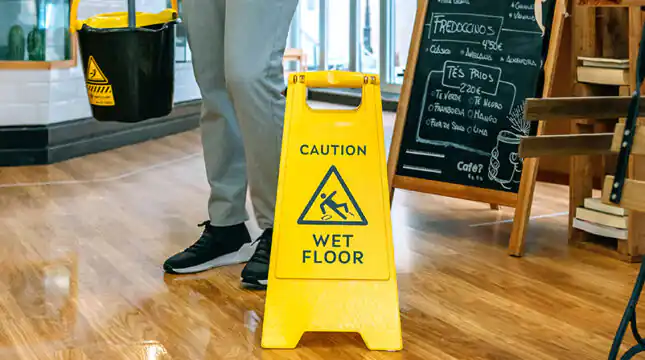What is considered slander?
Slander is a type of defamation. Defamation is defined as, “…in law, the act of communicating to a third party false statements about a person that results in damage to that person’s reputation.” Specifically, slander is any form of defamation communicated verbally.
For a defamatory statement to count as slander, it must meet the following criteria:
- It must present a false statement as fact
- It must have been made without attempting to verify if it was true
- It must cause harm to someone by damaging their reputation and/or causing them to lose income
- It must be spoken to at least one other person
While typically, you won’t go to jail for slandering another person or business, you can get sued in civil court. Defamation lawsuits like these can end up costing millions of dollars and even reach the Supreme Court.
Slander vs. libel
Slander is often confused with libel. While both concern defamation of another person or business by telling harmful lies, how the lie is told is what separates the two.
A slander is a type of defamation through spoken words; that is, by telling lies or making untrue statements.
For example, say you own a cleaning business and find out that a new service is competing for your clients. To counter their efforts, you go on the local news and say they only provide half the services they advertise.
If your competitor can prove they provide all the services they are marketing and that you’re making a false accusation, they could have a legitimate defamation claim to sue you for your slanderous statement.
Libel, on the other hand, is written defamation. For most business owners, this could apply to content on a website or social media, written advertising materials or in an email that is made public.
For example, say you own a construction business and are trying to outbid a competitor. You hear an unconfirmed rumor, and you write on their Yelp page that they do not follow local labor laws. If your competitor proves that they follow all labor laws, they could decide to sue you for damaging their good name.
So, while the first amendment gives Americans the right to free speech, both spoken and written, there are limits to that right. The most common example of this limit is that you can’t shout, “Fire!” in a crowded theater. The fact that you can be successfully sued for types of defamation like libel or slander is another such limit.
Insurance for slander
If you speak publicly or give interviews regularly, you could be at risk of committing slander. Even if you don’t, should you get caught bad-mouthing a competitor to the wrong person, you could be facing a defamation lawsuit.
Fortunately, many businesses are already covered for slander, even if they don’t know it.
General liability insurance is often the first policy small businesses purchase because it helps protect against the most common workplace risks like slips and falls and property damage.
Many people don’t realize that general liability can also help cover lawsuits related to personal injury and reputational harm, aka slander. So if you accidentally tell an untruth about a competitor and get sued, general liability can help with the costs.
Remember, general liability is there for accidents. Like most business insurance, it excludes intentional or malicious acts, which means you can’t intentionally slander someone and get coverage.
How NEXT helps small businesses stay covered
Running a small business can be a 24/7 job. That’s why NEXT offers 24/7 DIY access to manage your coverage on your schedule.
You can start a quote, customize your options and access your certificate of insurance online immediately — in about 10 minutes.










